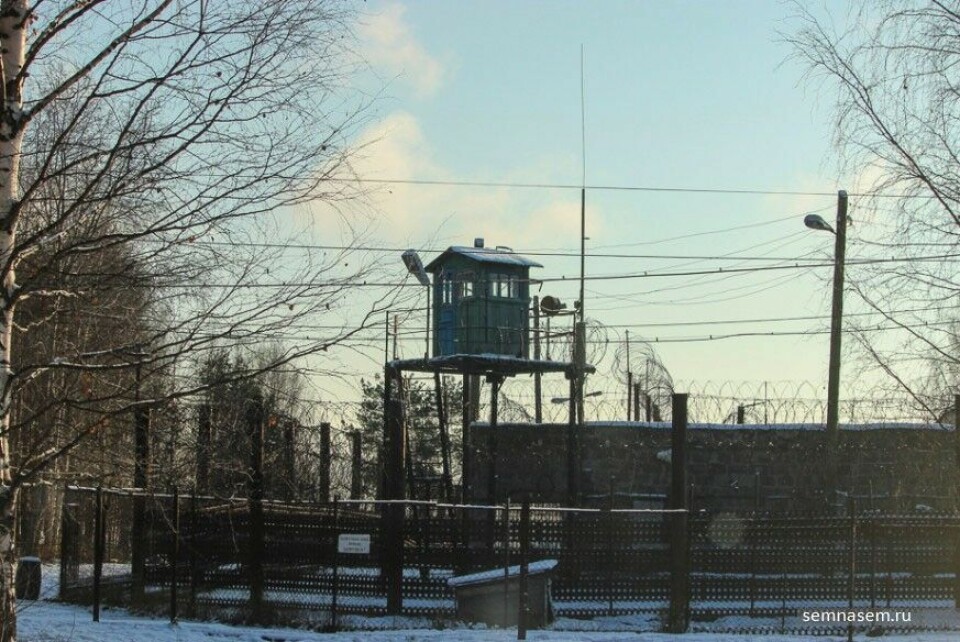
Colony 7: Torture and extortion
A story about the cruel conditions in the Karelian prison where both Mikhail Khodorkovsky and Ildar Dadin were serving terms.
p.p1 {margin: 0.0px 0.0px 0.0px 0.0px; line-height: 16.0px; font: 14.0px Helvetica; color: #000000; -webkit-text-stroke: #000000; background-color: #ffffff}p.p2 {margin: 0.0px 0.0px 0.0px 0.0px; line-height: 16.0px; font: 14.0px Arial; color: #333333; -webkit-text-stroke: #333333; background-color: #ffffff; min-height: 16.0px}p.p3 {margin: 0.0px 0.0px 15.0px 0.0px; line-height: 30.0px; font: 16.0px ‘Helvetica Neue’; color: #444444; -webkit-text-stroke: #444444; background-color: #ffffff}p.p4 {margin: 0.0px 0.0px 15.0px 0.0px; line-height: 16.0px; font: 14.0px Helvetica; color: #000000; -webkit-text-stroke: #000000; background-color: #ffffff}span.s1 {font-kerning: none}span.s2 {text-decoration: underline ; font-kerning: none; color: #1155cc; -webkit-text-stroke: 0px #1155cc}
Text and photos by Gleb Yarovoy, «7x7»
In February 2018, former head of the Karelian colony No. 7 Sergei Kossiev retired. People remember him as a figurant of Ildar Dadin’s letter on torture in the Segezha colony. Two months later, a criminal case was opened against him. However, not for torture, but for “exceeding authority». The correspondent of «7x7» studied the case materials, met with former prisoners of the colony No. 7, including those who suffered in the Kossiev case. They assert that at the helm of Kossiev, the prisoners were abused, worked for free, and some of them had to transfer money “for the needs of the colony”. Payments were calculated in hundreds of thousands and even millions of rubles. This is the story about Sergei Kossiev and how he organize life in his colony, told by «7x7» in partnership with “Meduza”.
A zone of joy
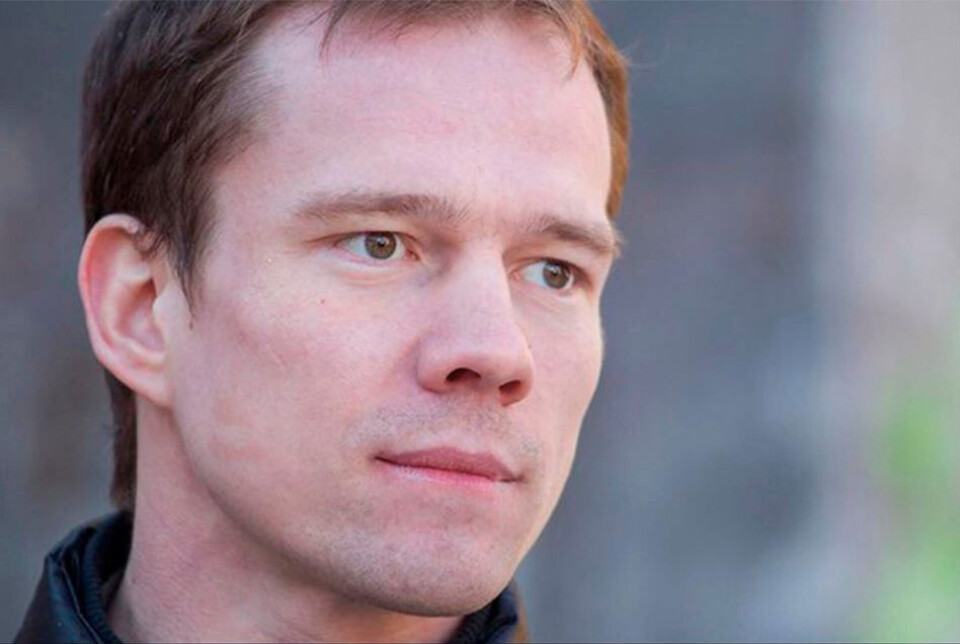
In 2011, the ex-head of the Yukos company, Mikhail Khodorkovsky, was transported from the city of Krasnokamensk, near Baikal, to the correctional colony No. 7, located in the Karelian town of Segezha. Moscow reporters immediately arrived in the city. They studied Segezha, talked with everyone they could — from ordinary citizens and former employees of correctional colony No. 7, to the town administration and the regional managers of of the Federal Prison Service. Most commentators agreed that everything was calm there. «Vesti-Karelia», a branch of TV channel “Russia” called the colony “a zone of joy” and “one of the best places of detention in the republic”.
“There are “prozharki”,” said Silonov. “It’s a punishment for breaking rules of the internal order. They pour water into blue two-hundred-liter barrels, throw the laundry soap there — ten pieces, add the bleach, and it all foams. <…> Then they cover the plums of a toilet floor and pour out this liquid. You are dressed in form number four — fufaika, ear-flapped hat, boots — they push you in there, you fall. And then you must collect all this liquid from the floor and pour it into the toilet. You can be beaten simultaneously.”
At that time this interview was unnoticed.
On November 1, 2016, the opposition activist Ildar Dadin, the first convict in Russia for violating the rules of holding rallies, wrote a letter about torture and abuse in colony No.7. “You should know that there is a whole mafia in the colony No. 7, with participation of the whole administration of the institution: chief of the colony, major of internal service Kossiev Sergei Leonidovich, and the absolute majority of the colony’s employees, including doctors,” Dadin wrote in the letter addressed to his wife.
You should know that there is a whole mafia in the colony No. 7
The letter received a huge response, the human rights commissioner in Russia Tatyana Moskalkova arrived in the colony, journalists began to stand at the walls of the colony, the Investigation Committee of Russia announced that it would carry out an inspection in the colony. On November 3, Sergei Kossiev, mentioned by Dadin, was suspended from work while investigated and went on leave. The colony was temporarily headed by his deputy Alexander Serov. On November 7, 2016, members of the Human Rights Council under the President of Russia Igor Kalyapin and Pavel Chikov arrived. And the same day a riot started in the colony.
Several prisoners who learned about the visit of of the HRC broke through the security and climbed onto the roof of the administrative building of the colony with a poster “Save Our Souls”. At that time, Chikov and Kalyapin conducted a survey of convicts and did not see the incident. They were told about it later by one of those serving a sentence.
Human rights activists appealed to the first deputy head of the Karelian department of the Federal Penitentiary Service, Alexey Fedotov, who supervised their visit, but he refused. He said that the riot was taking place in a neighboring colony.
The riot was quickly suppressed, they did not even have to call the riot police. Prisoners were taken out of the roof. Those who clearly stood in solidarity with them, were blocked — in workplaces, in detachments. Several instigators of the rioting were beaten by other convicts — close to the administration of the colony (one of the beaten suffered so badly that he got to the intensive care unit). Alexander Serov was fired, and Kossiev, who returned from leave, continued to work at his post.
Kossiev was frightened by the possible repetition of the riot, and, most importantly, additional attention to the colony, which by that time had already been reported by the majority of Russian media. As one of the released prisoners, who asked not to mention his name, told «7x7», the head of the colony sent for several respected convicted people — before colony they were engaged in business or worked in government. Kossiev asked them to help him — to develop a plan that would eliminate all this hype.
“He called me, says [former high-ranking official] Boris [name changed at the request of the interlocutor of «7x7»]. He said: “Come on, help, you know what to do in such situations, how to extinguish everything, we don’t need all these disturbances. You are the only hope”, recalls the participant of this conversation. However, according to him, in a couple of days Kossiev started to behave arrogantly again. He said that all the advice that he was given was “nonsense” and he handled it himself.
The interlocutor of «7x7» said that the mockery of the convicts and the extortion of money from them, which had temporarily ceased after the letter of Ildar Dadin and the riot, continued.
Those who worked and continue to work in this system consider such cruelty an acceptable measure.
“Karelia consists of the “red” zones. [That means] the head of the colony runs everything, not the leading personalities among the prisoners. If they cease to abuse the prisoners, the colony will turn from “red” to “black” very quickly. Then surely correction of the convicts will be out of the question. Yes, this is a cruel system, but necessary. And they will never treat the prisoners as normal people in the “red” zone, no matter who they are — murderers, or economic ones,” a former high-ranking official of one of the Karelian law enforcement agencies said.
The conflict caused by a letter from Ildar Dadin was handled. Dadin was sent to the Altai Krai. On February 22, 2017, his sentence was overturned, and on February 26 he was released. The colony No. 7 had been investigated for a long time — the inspection was looking for evidence of torture, which Dadin spoke about, but they did not find any confirmation. Sergei Kossiev retained the post of the colony chief, and torture continued.
Kossiev
Former convicts directly associated excessive cruelty towards prisoners with the personality of Sergei Kossiev. They are sure that physical violence, torture, humiliation of Muslim prisoners became commonplace in the colony No. 7 precisely at the helm of Kossiev. Many former prisoners have spoken and continue speaking about this. One of them, who spent more than 10 years in the Segezha colony, said that the beatings were carried out with the knowledge and with the full approval of the colony chief. “I’ve known him [Kossiev] since 2007, since he started a career: a junior lieutenant, an operative of the detention center No. 2 in Segezha. Before that, he was a cynologist. He does not pay any attention to the laws, laws simply do not exist for him. I saw it when he was an operative. He is cunning, deceitful, never keeps his word. For example, he could conclude an agreement with the convicted person concerning a minor violation: you will confess, and we will forgive you, I give “the officer’s word.” A man confessed and was punished severely. In dealing with prisoners, he himself repeatedly said: I’m the king and God here. <…> I can punish you, I can let you go, I can even kill you. I can do anything,” recalls the former convict.
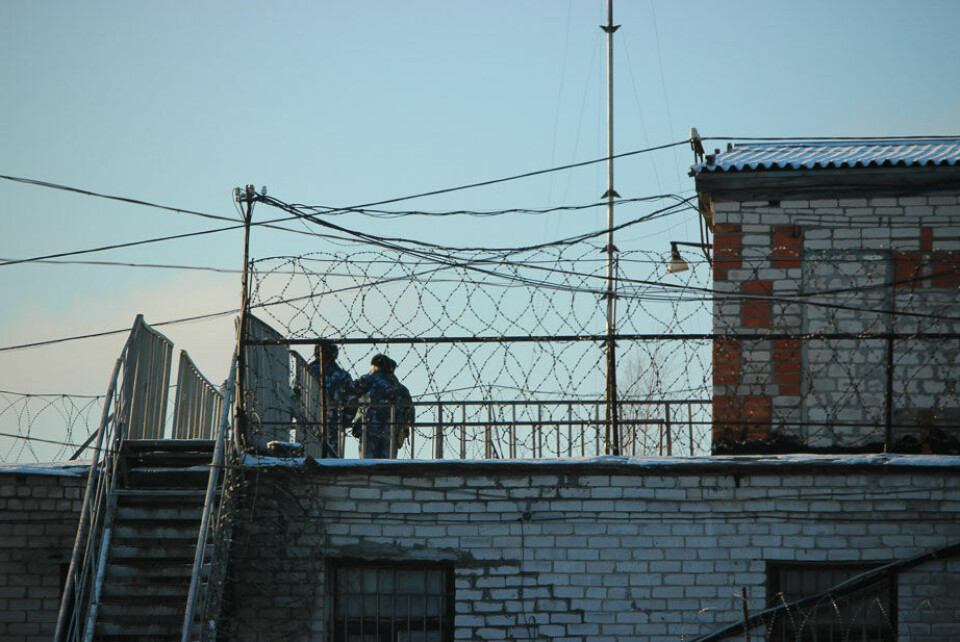
Other prisoners who served a sentence in the Segezha colony confirm this characteristic. It is said that Kossiev, a former «oper» [field investigator], solves all questions as an oper: there are no other arguments for him except force.
“By the standards of a normal person, he is definitely a sadist. By the standards of the colony, I would rather call him moron and inadequate. After I was specially sent to the hardest work, he personally came and told me: “Did you feel it? I’ll make you a facility manager, you’ll send [conscripts] to do this work. I am going to make you love this”, Alexander (the name was changed at his request), who was released from the colony in 2017, tells «7x7».
By the standards of a normal person, he is definitely a sadist.
Former convicts say that together with this, Kossiev managed to build an effective system of internal management of the colony — the regime ensured both order in the “red” zone, and income to its leadership. Everything that happened there, Kossiev took under his personal control.
“Kossiev does not take prisoners for people. He likes to watch them suffer. Even me, a military officer, he first sent to “prozharka”: you are dressed in a rubber suit and sent to clean the [fuel] boiler, which was recently turned off. The temperature is approximately like in a sauna, about 90 degrees [Celsius]. They thrust you there, and you clean it all day. I lost three kilograms of weight in a few hours of work,” Alexander said.
“Prozharka”
Another former Segezha prisoner Dmitry (the name was also changed at the request of the interlocutor), released from the colony in 2018, confirmed the story of Alexander, as well as the words of Denis Silonov, who was released in 2012 and told about “prozharka”.
“After the quarantine, where the majority was already subjected to violence and torture, the prisoners were separated in the detachments. Those who had money before prison were sent to “prozharka” — the most dirty and hard work. At first, they could be sent to the pigsty to carry urine and pigs’ shit in leaky buckets, pouring over themselves from head to foot in front of other prisoners. Then — to the boiler room to clean recently closed down boilers. After that — to the stone processing to manually break large stones into smaller ones with a heavy sledgehammer,” Dmitry said.
According to Alexander, in August 2016 a meeting was held in the sixth detachment of the colony. A representative of the prosecutor’s office arrived to discuss conditions of detention. One of them, Vladimir Apollonov, asked: “Tell me, can we organize paid emails in the colony? It would be useful for everyone: we would communicate with relatives more quickly, and the colony would receive money.” This issue was perceived by the leadership of the colony as criticism.
“Apollonov was sent to clean the boiler. He fell from the boiler, holding his heart, hardly breathing, with cyanotic lips and vomiting. Instead of getting help, he was beaten, because the prisoner’s boss thought the prisoner was “mowing.” Then he was taken to a medical unit, where a medical worker Alexandra Lyang advised him to jerk off. Then she asked: “Well, did you jerk off? No? Well, why did you come then? You are not ready to talk to me.” Apollonov died the same night. These testimonies are in the record of my interrogation on the Kossiev case. The interrogation was conducted by Ulan Kenzeev, the investigator of the Karelian investigation department of the Investigative Committee. I told him the names of those prisoners who personally brought Apollonov to the medical unit,” Alexander said. The interlocutor of «7x7» added that this information was reflected in the interrogation report, but he was not aware of any checks. Meanwhile, according to Kommersant, the official cause of Apollonov’s death was ischemic heart disease. His lawyer, Ruslan Marcinovsky, tried to challenge this conclusion in vain in 2016.
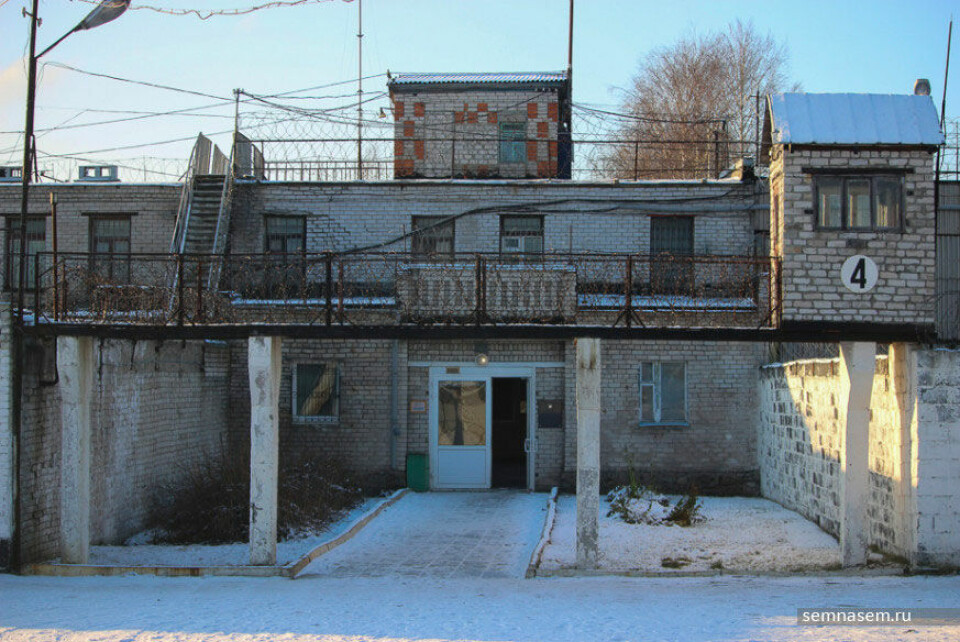
All the «7x7» interlocutors who stayed in the colony say that Kossiev personally sent prisoners to “prozharka”. According to them, it was also one of the easiest ways to persuade imprisoned businessmen to start “sharing”: after “prozharka” the convicts were offered cooperation to facilitate working conditions. And most of them agreed.
“You were clearly told: “Either you participate in the life of the colony, or we’ll rot you.” In the spring of 2017, one of the prisoners Vitaly [name changed], after the proposal for “participation in the life of colony” asked: “What will I get in return?” Instead of answer, he was immediately put in the punishment cell. He has been there for over a year. And I was smart enough not to ask, but to agree,” Alexander says.
Participate in the life of colony!
In February 2018, Kossiev, who had not reached the age limit of service, retired. The human rights activists assumed that the retirement was a delayed punishment for the scandal related to Ildar Dadin. Soon it turned out that this was not the case. Leaving the colony was the result of an inspection, after which criminal cases were brought against Kossiev and other former leaders of the colony for excess and abuse of authority and for extorting money from prisoners. Officially, the initiation of the case was announced in April 2018. Kossiev is a defendant, but he is not detained.
In November 2017, a criminal case for abuse of authority was instituted against Anatoly Luist — Kossiev’s deputy. After his confession, an article on taking bribes was added to his file. In the cases of Kossiev and Luist, according to «7x7», there are general episodes. Investigators of the Karelian Investigation Committee regarded forced, under the threat of torture, “participation in the life of colony” as excess and abuse of power and extortion.
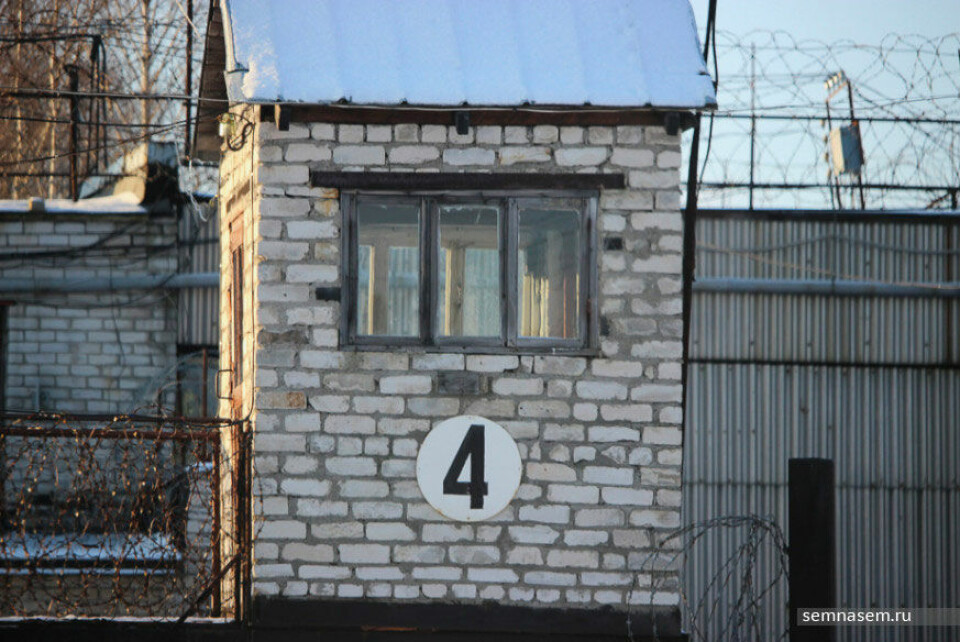
Witnesses and victims in criminal cases against Kossiev and Luist are several prominent businessmen and politicians of Karelia and neighboring regions — the Murmansk and Leningrad regions. All of them served terms in the colony No. 7 and agreed to testify against the colony’s leadership for various reasons: several people were released and ceased to be dependent on the leadership of the colony, others were sent from Segezha to other colonies.
The former detainee of the colony No. 7 Alexander said that for a preliminary talk with wealthy convicts — those who did business or worked in the civil service — Kossiev came immediately after their transfer to the colony, directly to quarantine (a special room in a colony where prisoners spend first two weeks). To whom it was worthwhile to go — was most often obvious from the case materials. For example, a «7x7» interlocutor was given three years of prison for an economic crime, and among his inner circle of communication — in prison lingo people from this circle are called “semeiniki” — there were well-known businessmen and politicians from different regions of Russia.
From the materials of the criminal cases against Luist and Kossiev it follows that in 2016 they deliberately sent the secured prisoners to hard physical labor. After this, the convicts were promised to ease the regime if they agreed to finance the “repair and improvement of the colony territory”. They had to agree — as stated in the case, “being in a position dependent on the leadership of the colony.”
With those who agreed to cooperate, further negotiations were conducted through a mediator. In the documents of the Kossiev case, such a mediator was named “convicted B.” and Kuznetsov (without a name), who held the post of “colony assignment clerk.” According to the investigation, it was Kuznetsov (also known as Kats) who, submitting only to the head of the colony Kossiev, received money from prisoners and their relatives. Former prisoners told about Kuznetsov in detail:
“After “prozharka” I was summoned to the facility manager, where Kuznetsov addressed me: “Do you understand who I am?” he asked. I said that I did not care. He explained that he was working for the “master.” I realized that he had almost unlimited powers: in violation of all the laws he walks around the colony with his keys, he is not touched by the guards either on the inner or outer perimeter, he sets the queue and places for long visits, the telephone room etc. Even the deputy heads of the colony obey him,” says former prisoner Alexander.
According to him, Kuznetsov suggested transferring 125 thousand rubles for the “needs of the colony”, and he agreed. The next day the facility manager said that “Kuznetsov demanded to increase the amount twice”.
“I agreed again, after that I was taken to the telephone conversation room, and they gave me a chance to call relatives, explain how much and where to transfer,” says Alexander.
In the materials of the criminal case against Luist and Kossiev it is said that several prisoners transferred an average of 200 thousand rubles each “on the needs of the colony”. With this money, materials were purchased to repair the administrative and residential buildings of the colony. Repair was carried out “with the illegal, gratuitous use of convicts’ labour.” It is still unknown how the administration of the colony legalized the money received for the repair and equipment. The investigation is sure that part of the money “was defalcated by the colony’s employees”.
Kuznetsov suggested transferring 125 thousand rubles for the “needs of the colony”. The next day, he demanded to increase the amount twice
According to the materials of the case, one of the prisoners named Gogua provided the colony with “material assistance” in the amount of about 5 million rubles, “so that he would not be rotted in the punishment cell and on intolerable works specially invented by Kossiev.” Of this amount, about 1.1 million rubles was spent on the repair of the building of detachments No. 4 and 5, the roofs of the production premises and the installation of LED lights in the courtyard of the colony. About 500 thousand rubles were spent on the construction of a workshop for the manufacture of cooperage products (parts were purchased — stainless steel, glue machine, ropes, clamping machines, nails).
According to the source of «7x7», all this convicted Gogua confirmed during the confrontation with Kossiev in late April 2018. It also turned out that 50 thousand rubles from the amount were payment for the allegedly acquired “summer kitchen” in the colony — this sum was simply transferred to the Anatoly Luist bank card.
Nothing was made unbeknownst to Kossiev
According to the former prisoner of the colony No. 7 Alexander, not every prisoner understands the role that Sergei Kossiev played in extortion. However, his history of relations with the prison authorities shows that it is the head of the colony who gives all orders, including those concerning the receipt of money from prisoners. After “prozharka”, he received a proposal for cooperation from a supervisor of colony Kuznetsov. He required to transfer 250 thousand rubles “for the needs of the colony”. Soon after Alexander agreed, the colony manager came to him and explained that 80 out of 250 thousand should be transferred to the bank card of his friend, and the remaining 170 thousand — to the personal card of the supervisor’s wife. The detainee reported this to relatives by phone. After the call, Kuznetsov came to ascertain who asked to divide the sum into two parts. Receiving an answer, Kuznetsov went into Kossiev’s office and went out with a ready decision: transfer the entire amount to his wife’s card. The interlocutor of «7x7»is sure that this decision was made by Sergei Kossiev — both in this case, and in other similar ones.
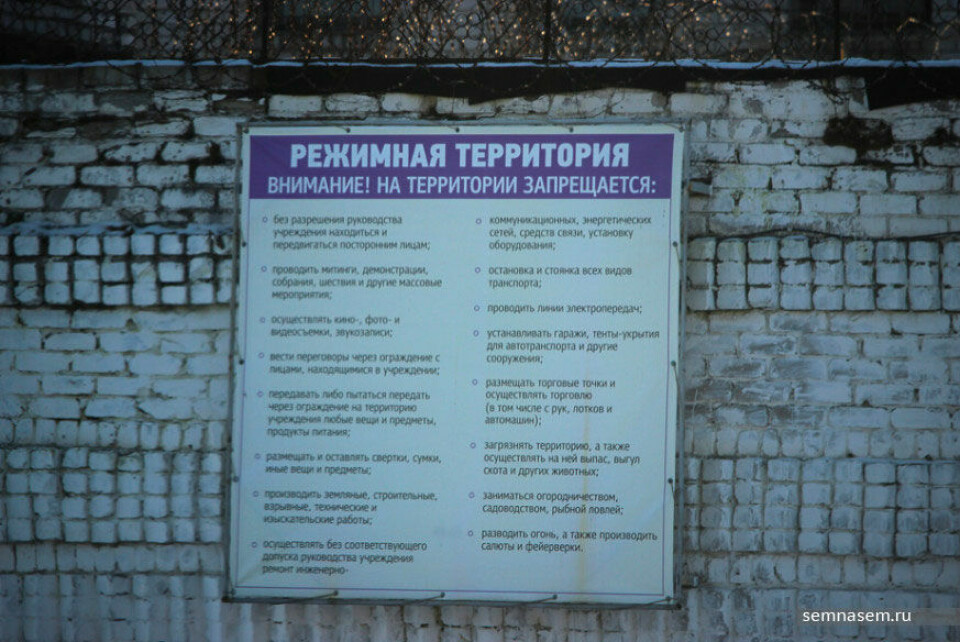
“Indeed, without knowledge of the chief, no one could move a finger. It is necessary fix something — go to the chief, you want to replace footwear on more convenient — to the chief. The facility managers and the commanders of the detachments went to Kossiev every day, sometimes more than once, for some planning meetings. They apparently also discussed where it was necessary to “patch up”, says Dmitry, who also served his sentence in the 6th detachment of the colony No. 7.
The «7x7» interlocutors recognize, however, that they do not know whether Kossiev and other leaders of the colony have appropriated money that they extorted from prisoners. They confirm that some of the funds were accurately used “for the intended purpose”: between the detachment No. 6, where the businessmen were serving their sentence, and the quarantine where one of them worked, they built a fence, and in the building of the detachment, work was done on the construction of a heating system. But how much it costed — 250 thousand (the sum that was transferred to the “needs of the colony”) or less — it can not be estimated. The investigation also does not seem to have complete data. The materials of the case indicate that Kossiev, through Kuznetsov’s mediation, extorted money “for repair and construction work on the territory of the colony” in “conditions of insufficient budget financing,” “seeking to present himself in a positive light” to the leadership of the Karelian Federal Prisons Service.
The bribes were the only way for the leadership to earn at the helm of Kossiev. According to former employees and former inmates of the correctional facility, as well as from the materials of criminal cases against former colony leaders, it follows that it was usual practice to use slave labor of prisoners.
In cooperation with the FSB, the investigation tries to figure out how many types of “business” were organized by the leadership of the colony. According to our interlocutors, in addition to the printing house, sewing and woodworking industries, a stone processing enterprise and a car service operated on the territory of the colony. The car service was quickly closed in 2016 after the colony started to have more attention in connection with the Dadin case. Stone processing continues to this day.
An employee of one of the Karelian enterprises confirmed that the colony processed stones, most likely, “according to the gray scheme”:
“I have no idea how our founder managed to get stone processing equipment bypassing all the rules. It is clear that the convicted cut the stone for free or almost for free, as a result, additional profit was generated. It probably was distributed between our leader and the colony’s superiors. They seemed to have temporarily stopped their cooperation after Dadin’s case, but after a while it was renewed.
According to a source familiar with the course of the investigation, Kossiev had a deal with the investigation and after a series of confrontations with the victims made confessions. The court decision on the criminal case against Sergei Kossiev will be taken “in a special order”: without trial, without interrogation of witnesses and without the involvement of the press. Former prisoners of the colony are afraid that Kossiev can escape real punishment, because “the system does not want to take rubbish out of the hut.”
The interlocutor of «7x7» from among the former prisoners of the colony said that extortion ceased after Luist and Kossiev left the colony. However, the system of violence created by him is unlikely to collapse with his departure. Many of those whom former prisoners called sadists remain working there.
Some of the convicts who filed complaints of torture and abuse after the letter of Ildar Dadin became the defendants of the new criminal cases. One of these convicts, Koba Shurgaya, is tried for a “false denunciation”, Khazbullat Gabzayev was already sentenced to 1 year and 8 months for “disorganization” of the colony’s work, another convicted prisoner, Yuri Korobeinikov, will be judged on the same article.
This story is originally posted on the 7x7-journal.ru and re-published as part of Eyes on Barents, a collaborative partnership between media organizations and bloggers in the Barents region















